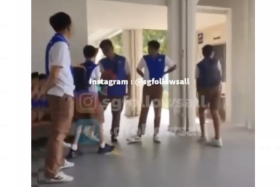Dad sues principal for not returning confiscated phone
Judge upholds school rule stating that confiscated phones are held for at least three months
Should a school hang on to a confiscated phone for three months?
This issue has reached the courts here after a parent felt that the penalty was too harsh.
He is suing a secondary school principal for damages but has not succeeded in getting the school to return the phone.
The parent's request to have the phone returned immediately was turned down by District Judge Clement Julien Tan.
He ruled that the principal was justified in holding on to the phone, as school rules had made it clear that any student caught using a phone during school hours will have it confiscated for at least three months.
The boy met the principal on March 21 and admitted that he had used an iPhone 7 during school hours on March 8.
It was confiscated, and the SIM card was returned along with a receipt stating it could be retrieved in three months.
DISPROPORTIONATE
On March 21, the parent wrote to the principal, saying the phone was his, and he wanted it back.
He said "a three-month confiscation is disproportionate to the offence", and his son had assured him that he would not break the rule again.
Failing to get a reply, he took the principal to court.
The father, represented by lawyer Andrew Hanam, is claiming that retaining the phone amounts to the tort of conversion, which involves denying a person's rights to his property.
He asked the court to get the school to return the phone while the case is being decided.
The principal's lawyer, Mr Alfonso Ang, said the claim is "frivolous and vexatious" and that the principal is responsible for overseeing student discipline based on regulations.
He also said the parent and son had both been told that the use of phones was banned.
District Judge Tan, who heard the application on April 28, said the principal was simply following the rules.
He also rejected the parent's contention that he, personally, is not bound by the school rules as there is no contract between him and the principal.
"Such a position is, in my view, untenable," said the judge, in dismissing the application.
The parent, he pointed out in judgment grounds, knew about the rules and "could have enrolled his son in another school".
The judge added that the father had not "established any special circumstances in the present case" to enable the interim injunction to succeed.
"I accept that there may be a risk that until the matter is fully and finally disposed of, the school may be faced with demands from parents or guardians for the return of confiscated phones," he said.
"This may also send a wrong signal to the students that they can use their mobile phones during school hours with impunity, thus rendering the phone rule otiose, however temporarily this might be so."
Get The New Paper on your phone with the free TNP app. Download from the Apple App Store or Google Play Store now


